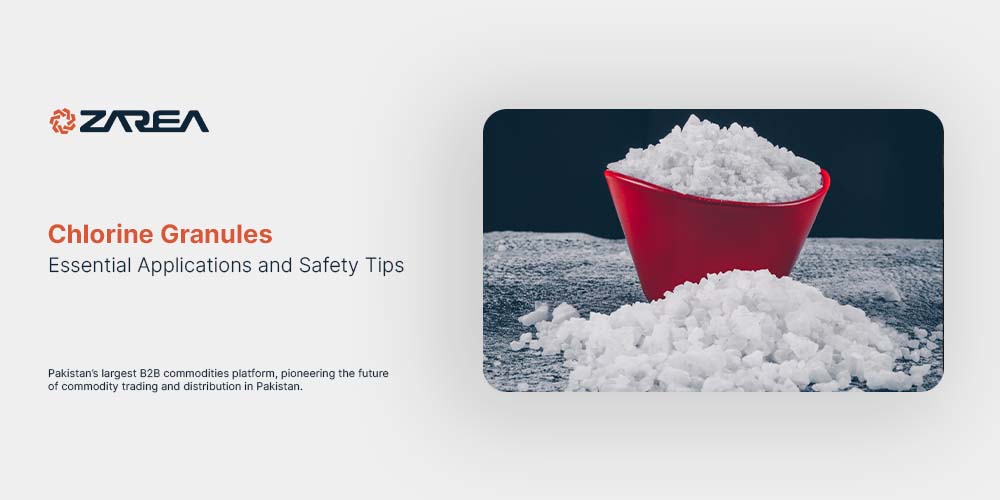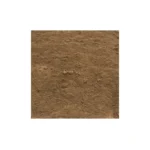Introduction – Chlorine Granules:
Chlorine granules used essentially for anyone who owns a swimming pool or spa, as they are crucial for maintaining water cleanliness. Only a small number of these strong particles can transform cloudy, bacteria-filled water into a clear refuge. What exactly are chlorine granules, and what is the reason for their strong effectiveness? Explore the world of these powerful cleansers as we examine their makeup, uses, and benefits.
Stabilized Chlorine Granules: A Complete Guide for Beginners
Various types of chlorine are on the market, with stabilized chlorine granules being highly favored by pool and spa professionals. This mixture contains cyanuric acid, which serves as a stabilizer to slow down the breakdown of chlorine due to exposure to UV radiation from the sun. This indicates that the chlorine will have a longer lifespan and require less usage, ultimately saving time and money, all while maintaining efficient water treatment.
Imagine you’re organizing a lengthy, sun-filled day by the pool with loved ones. You prefer not to constantly monitor and regulate the pool’s chlorine levels. This is the place where stabilized chlorine really stand out. They continuously emit chlorine to maintain the water’s safety and cleanliness all day long, eliminating the need for frequent reapplications.
How Stabilized Chlorine Works
Adding stabilized chlorine to your pool results in their dissolution and the creation of hypochlorous acid. This acid acts as the primary disinfectant, targeting and deactivating bacteria and algae. The presence of a stabilizer in the granules ensures that the acid does not evaporate or deteriorate as fast as it would without protection. This is crucial for outdoor pools in sunny regions, as UV rays can quickly lower chlorine levels.
Chlorine Granules Uses: Essential Applications for Water Care
Chlorine granules are used not just in pools and spas but also in other applications where water cleanliness is important. For instance, they are used for purifying water in the food processing sector. Hospitals utilize chlorine to sterilize water systems, guaranteeing that the water supply is free from microorganisms that may harm patients with compromised immune systems.
Real-Life Example of Chlorine at Work
Think about a local communal pool that brings in many swimmers daily. Chlorine is utilized by the pool manager to maintain cleanliness and ensure safety of the water for everyone. The management can maintain optimal chlorine levels by adjusting the granule quantity according to the number of swimmers and weather conditions.
What Are Chlorine Granules Used For? A Complete Guide
Chlorine granules are mainly utilized to disinfect and uphold the transparency and safety of water in different environments, ranging from personal swimming pools to big public water facilities. Below are several important purposes:
- Swimming Pools and Spas: Chlorine is routinely used in pools and spas to eliminate harmful bacteria and hinder the growth of algae.
- Water Treatment: Water treatment facilities use chlorine granules to purify drinking water, making sure it is safe for the public to drink.
- Industrial Applications: Chlorine is an essential in water treatment processes for industries like pharmaceuticals and food processing, where sterile water is necessary.
Advantages of Using Chlorine Granules
Chlorine granules provide multiple benefits compared to other chlorine forms.
- Ease of handling: They are simple to store and manage. You can measure the precise amount required, thus minimizing waste.
- Economical: Granules are typically more concentrated than other types, which makes them a cost-effective option in the long run.
- Stability: Particularly with stabilized versions, they provide extended effects, ideal for sustaining steady chlorine levels.
If you want to learn more about chlorine granules and their different uses or where to buy them, consider checking out Zarea for a variety of products and detailed information.
FAQs
What are chlorine granules?
Chlorine granules, which are commonly used in pools and spas, are a type of chlorine used for water disinfection. By slowly releasing chlorine, they efficiently clean water to eliminate bacteria and algae.
Are chlorine shock and chlorine granules identical?
No, chlorine shock and chlorine granules are not identical. Chlorine shock quickly raises chlorine levels in a pool to fight algae or bacteria, while this chemical release chlorine slowly.
Is it okay to add chlorine granules directly into a pool?
While it is acceptable to place this chemical straight into a pool, it is advised to first dissolve them in a bucket of water to avoid damaging the pool liner and guarantee uniform spread in the entire pool.
How do bleach and chlorine differ from each other?
Liquid sodium hypochlorite bleach has lower concentration and shorter shelf life than solid chlorine, which offer a more stable and concentrated form of chlorine for pool sanitation.
References
- Centers for Disease Control and Prevention (CDC): Offers guidelines on chlorine use in pools and water treatment for public health.
- World Health Organization (WHO): Provides global guidelines on chlorine in drinking water management.
- Environmental Protection Agency (EPA): Discusses chlorine use for disinfection in residential and public settings.

































